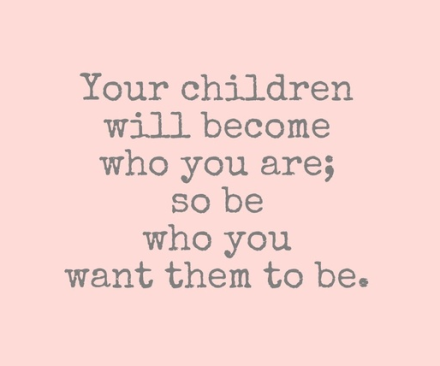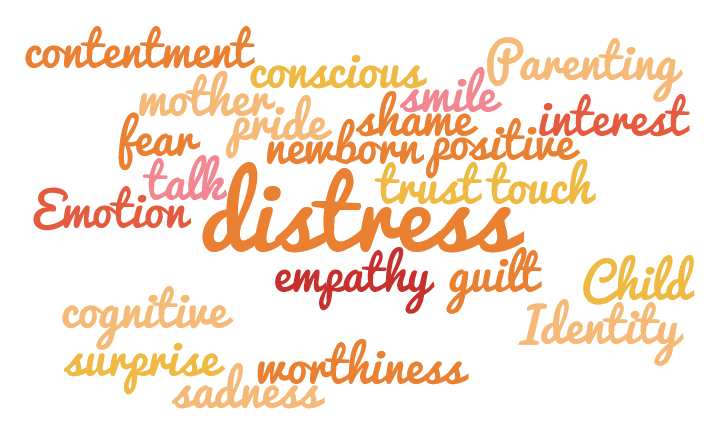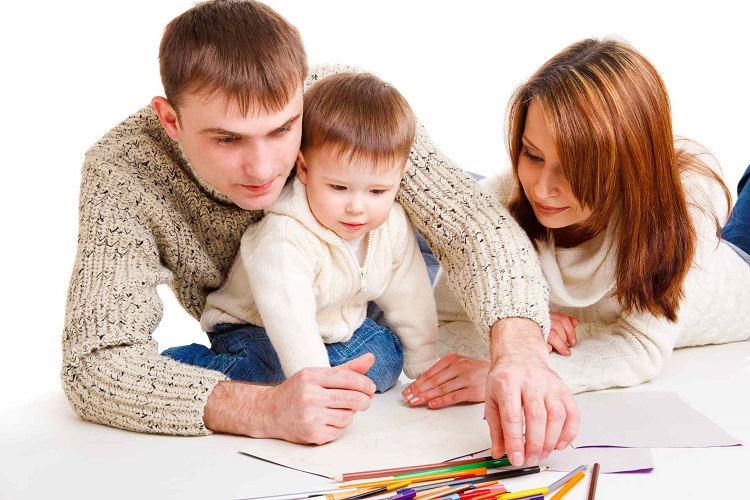As we grew up, we saw how our parents raised us and how our friends were raised by their parents. Though we had no clue about parenting or parenting styles, we often wished if only our parents were as lenient as our friend’s or thanked that our parents are not as strict as the other friend’s parents and we saw the difference in behaviour and attitude between ourselves. So inevitably, parenting style does affect the behaviour and personality of a child and the same concept have always interested developmental psychologists. However, it is difficult to set a link between parental style and the future behaviour of children but in many cases, researches have indicated that a parental style does affect a child’s personality and they carry the same into adulthood in most cases. Let us understand the four styles of parenting

What is a Parenting Style?
A Parental style is a psychological concept indicating the standard behaviour and strategies adopted for parenting. Parenting style differs from parent to parent and also in response to certain behaviour a child exhibits and creates a bond other than the biological one between the parent and the child. There are broadly two different attributes of a parenting style-
- Responsiveness: An attribute of parenting that defines an extent to which parents respond to their child’s needs and demands by being supportive and understanding. While some parents blindly agree and say ‘Yes’ to the child’s need, others draw a line between what is needed and what is not and then respond while few more just say ‘No’ without understanding the need. In short, responsiveness varies between giving in to all your child’s fancies to no response to any need cited.
- Demandingness: This is an attribute which defines an extent to which parents demand results from their child and control their behaviour through set protocols and rules. Similar to the attribute responsiveness, demandingness varies between two opposite poles of parenting, one being over demanding and making the child perform a task at any cost and Second, no demands on the basic behavioural aspects of a child.

Beginning of ‘Parenting Style’
Psychologist Diana Baumrind performed a study on 100 preschool-aged children during the early 1960s through various research techniques to understand various dimensions of parenting. The dimensions identified were “disciplinary strategies, warmth and nurturing, communication styles, and expectations of maturity and control.” Basis these dimensions, she suggested three styles of parenting. Further studies conducted by Maccoby and Martin added one more style of parenting. Let us take a look at various styles of parenting.
Though most parents exhibit a parenting style, they often do not realise which category they fall into. Here’s a guide to understand the different parenting styles, the characteristics of parents with various parenting styles and the effect of the same on their children.

Various Parenting Styles:
Authoritative Parenting Style
A Parenting Style that focuses on balance and has been identified as one of the most effective styles of parenting.
Authoritative parents have moderate and reasonable demands and high responsiveness for children. Though Authoritative Parents have high expectations and demands from their children, they also provide their children enough resources and support to meet those demands and succeed. Such parents are good listeners and listen to their child’s needs and concerns and provide adequate love, warmth and support while adding certain limits and fair discipline.
Characteristics of an Authoritative Parent:
- They listen to their children’s needs and concerns and act upon them as and where necessary.
- They encourage independence in children and help them learn things on their own while carefully monitoring their activities.
- They exhibit love and warmth towards their children and allow them to express their opinion on matters.
- They set limits and expectations to their child’s behaviour and exhibit fair punishment and consistent discipline.
- They exhibit same behaviour as they expect from the child and thus the child is aware of the expectations and imbibe the behaviour easily.
Effects of Authoritative Parenting Style on the child:
- Children with authoritative parents are more capable, happy and realise success with ease.
- They have high self-confidence and resilience.
- They have lesser levels of stress, exhibit strong emotional control and place reasonable demands.
- They are capable of learning new skills by themselves and are self-sufficient.
- They are socially confident and are easy to converse and rationalise with.
Permissive Parenting Style
A Permissive Parenting Style has typically low demands and high responsiveness. Such parents tend to be extremely loving and warm but provide almost no protocols or set a discipline. Their attitude of “Kids will be Kids” make them more of a friend to their children than a parental figure. They make no or few efforts to set guidelines or rules for their children while being very indulgent. Research and observation has identified that children with permissive parents often exhibit negative behaviour.
Characteristics of a Permissive Parent:
- Indulgent and more of a friend than a parent figure.
- Set fewer rules and guidelines
- Even when there are guidelines and rules, there are inconsistent and have minimum supervision.
- They rarely enforce any consequences or punishments.
- They emphasize more on the child’s freedom than behaviour.
- Provide no or minimal schedule or routine.

Effects of Permissive Parenting Style on the Child:
- Since permissive parents exhibit less demands, children do not find a purpose or goal to strive for and thus lack achievement in many areas
- They exhibit poor decision-making skills.
- Show indiscipline and have weak emotional understanding.
- They tend to be highly demanding and throw tantrums often to be pacified only through bribing with a toy or gift.
- Lack time management and low on self-confidence.
- Children with permissive parents are found to be easily inclined to delinquency.

Authoritarian Parenting Style
An Authoritarian parenting style is characterized by high demands and less response. They express high expectations from their children however, are very less in nurturance and providing appropriate feedback. They exert control and authority over their children, severe verbal or corporal punishment for making mistakes and stress overly on obedience and discipline.
Characteristics of an Authoritarian Parent:
- Tend to be more demanding and not responsive.
- They set strict rules to be followed at home and outside. Failure in adherence leads to severe punishments.
- They do not express love or warmth to their children and often resort to scolding the child for failing than expressing words of encouragement
- They do not give children any choices to make or voice their opinion.
Effects of Authoritarian Parenting Style on the child:
- Children with authoritative parents exhibit lower self-esteem and self-confidence.
- They tend to associate success with love and failure with punishment.
- Some may act fearful and can be shy in front of others.
- While some may exhibit aggressive behaviour
- They suffer from anxiety and have higher levels of stress.
Uninvolved Parenting Style
Uninvolved parents are also referred to as neglectful parents and have low demands and low responsiveness towards their children. There are identified as indifferent and neglectful towards the child’s needs.
Characteristics of an Uninvolved Parent:
- They’re emotionally uninvolved with their children
- They offer minimum or no supervision to their child
- The show of love and affection towards the children is also minimum
- They neither have demands from their children nor they enforce any discipline
Effects of Uninvolved Parenting Style on the Child:
- They learn to look after themselves, unsupervised
- They are often fearful and dependent on others
- Children with uninvolved parents are emotionally vulnerable
- They exhibit more delinquency during adolescence
- They suffer from higher stress levels and anxiety due to minimum parental support

Which Parenting Style is the Best?
Though parenting style has been categorized into four major styles, not all parents fall under these broad categories. Parenting style evolves and can be a mix of two or more styles of parenting. Though Authoritative Parenting Style has been recognized as the most effective one, positive or negative behaviour shown by the child in the later stage cannot be solely attributed to the parenting style. There are various other factors like student-teacher bonding at school, peer influence, financial strength and bonding in the family etcetera. A child’s innate behaviour also plays a major role on the type of parenting style one might adopt to.





[…] The first post for #BlogchatterAtoZ has to begin with ‘A’ and what better topic than advice for new parents when it comes to parenting. During the parenting journey, advice is something you will get in plenty. In my four years, I have got too much and there is no sign of it stopping anytime soon. Everyone gives parenting advice and the art is to filter it. Most people wish well but it is also true that you might not be able to use it or all as it does not suit your parenting style. […]